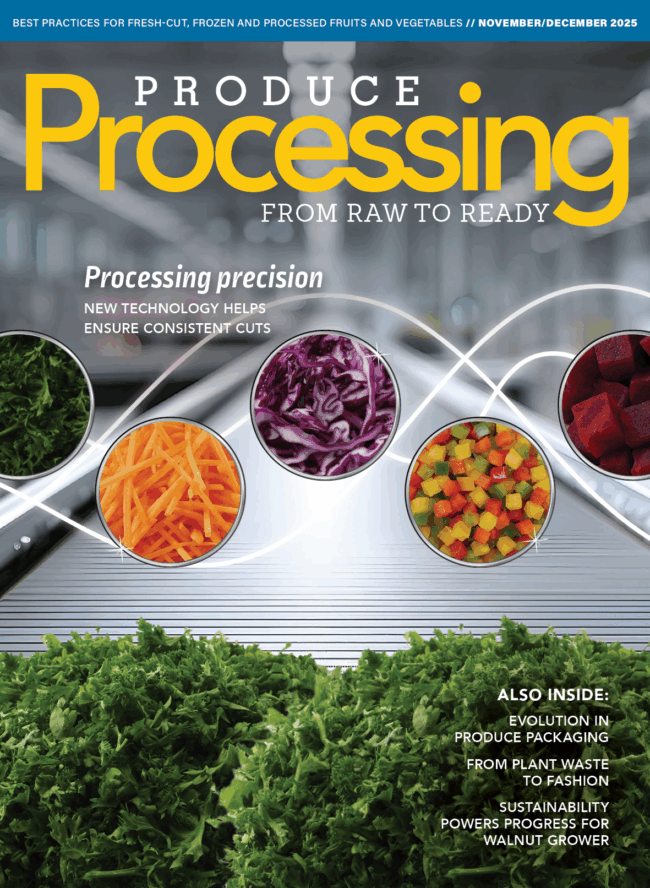Cyclospora: What can the produce industry do now?
The intestinal parasite Cyclospora cayetanensis is a growing food safety priority for the fresh produce industry. C. cayetanensis is the only Cyclospora species that causes illness in humans.
While these illnesses were long associated with imported produce grown with unsanitary water in tropical environments, recently outbreaks have been tied to U.S.-grown produce. The pathogen is only found in small numbers — and doesn’t replicate — outside its human hosts, making studying it difficult. Much is unknown about how to prevent cyclospora from contaminating fresh produce.
On June 15, Center for Produce Safety hosted a forum for the fresh produce supply chain on C. cayetanensis. CPS began funding parasite research in 2015 and cyclospora-specific research in 2017, investing $2 million in industry funds to date to answer industry’s questions.
So what do we know?
Some highlights from CPS’s forum are:
- The pathogen is hard to study; that complexity may present opportunities. C. cayetanensis cannot be grown in a laboratory, making it difficult to study. After being excreted in feces, cyclospora oocytes (immature eggs) require seven to 15 days outside the human body, in the environment, to mature enough to produce the spores that cause illness. This complex life cycle may present opportunities to control it.
- Detection technologies are improving but still need work. Historically, Cyclospora could only be detected through microscopy. New detection methods have been tested and tried, yet work is still needed to reliably detect the correct species; this should be a research priority.
- There are no real inactivation options — yet. Cyclospora oocytes are resistant to chlorine and other commonly-used sanitizers, along with fungicides and pesticides used by our industry. Microwave and thermal energy kill them, but negatively impact fresh produce quality. CPS is funding research by Scott Lenaghan, Ph.D., to explore gamma radiation, ozone and ultraviolet light. Kali Kniel, Ph.D., is evaluating filtration options to remove oocytes from water; that work could also help industry comply with new water quality standards.
What do we do now?
Testing for Cyclospora on raw or finished produce has little value, akin to looking for a needle in a haystack given the very low levels it is found in food.
For now, we have two powerful tools. The first is sanitation best practices.
The most effective way to control cyclospora is to keep human feces from contaminating production environments. Fecal-contaminated surface irrigation waters can transmit cyclospora to crops. Fecal contamination of workers’ boots, gloves and harvest tools, or post-harvest equipment, may also be paths. Handwashing by employees who have product contact is paramount. Properly maintain and sanitize portable toilets, and avoid sewage leaks near fields. Monitor for flooding of nearby sewage systems.
The path forward: Research
The second tool is continuing research and education. Future consumer confidence depends on our entire supply chain doing our level best to learn about, and eventually control, this pathogen.
CPS-funded studies are mapping C. cayetanensis in domestic agricultural waters. We are proud of the work these scientists are doing, including Center for Disease Control and Prevention’s Mia Mattioli, Ph.D., University of Arizona’s Gerardo Lopez, Ph.D., University of Delaware’s Kniel and University of Georgia’s Ynes Ortega, Ph.D.
Two additional projects will begin in January 2022. USDA Agricultural Research Service’s Benjamin Rosenthal, Ph.D., will evaluate how effectively filters can remove parasites from irrigation water. Purdue University’s Lia Stanciu, Ph.D., will seek to develop a simple, paper-based colorimetric test to detect C. cayetanensis in the field.
To catch up on the latest science about C. cayetanensis and fresh produce, watch the June 15 forum recording via CPS’s website, www.centerforproducesafety.org. There you can also learn more about the research mentioned here, and CPS’s other produce-specific studies. CPS will hold a second forum Sept. 8, offering an even deeper dive into the known science for food safety professionals.
 — Mike Joyner is a member of Center for Produce Safety’s board of directors and president of the Florida Fruit & Vegetable Association. The Florida fruit and vegetable industry has supported CPS produce safety research since CPS was founded.
— Mike Joyner is a member of Center for Produce Safety’s board of directors and president of the Florida Fruit & Vegetable Association. The Florida fruit and vegetable industry has supported CPS produce safety research since CPS was founded.










